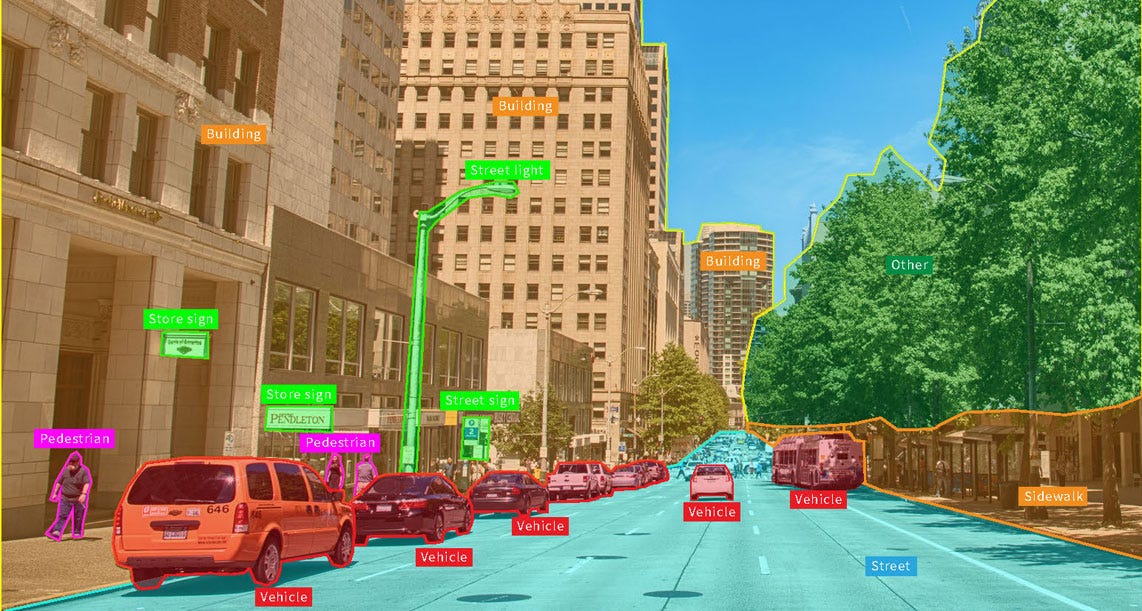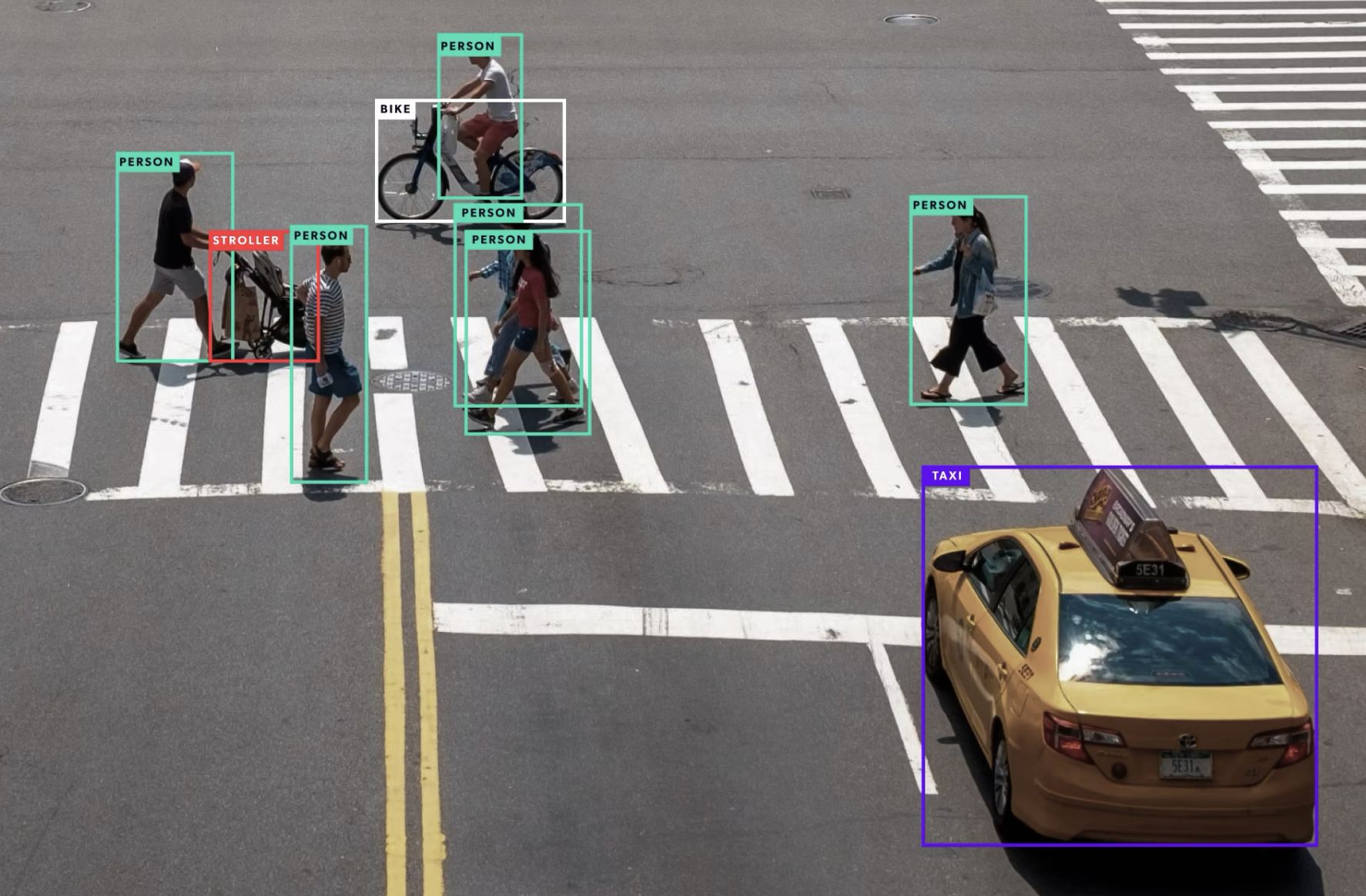Top 5 Computer Vision
Courses Online in 2025

📖 7 minutes read
🗓️ 18/02/25
👤 Tapway
Computer vision is transforming industries, from retail analytics to smart surveillance and beyond. Whether you’re a beginner or an experienced professional, the right course can help you master this cutting-edge technology. Here are two of the best computer vision courses in 2025, with key details.
1. Deep Learning for Computer Vision
(Coursera – Advanced Computer Vision with TensorFlow)
Level: Intermediate to Advanced
Cost: Subscription-based ($49/month with Coursera Plus)
Course Overview: This course covers state-of-the-art deep learning models for computer vision, including convolutional neural networks (CNNs) and their applications in image classification, object detection, and segmentation. The curriculum emphasizes hands-on experience with TensorFlow, ensuring learners build practical skills that can be applied in real-world projects.
What You’ll Learn:
- • Implementing CNN architectures with TensorFlow
• Data preprocessing, augmentation, and transfer learning
• Advanced techniques such as object detection, segmentation, and image captioning
• Optimizing and deploying deep learning models for production
Why Choose This Course?
- • This course is taught by leading AI researchers and offers hands-on TensorFlow projects that prepare you for real-world applications. With a focus on practical implementation, this course is perfect for those looking to integrate deep learning into their professional careers.
2. Deep Learning for Computer Vision (Stanford University)
Institution: Stanford University
Level: Intermediate to Advanced
Cost: Free (lecture videos available on YouTube)
Course Overview: One of the most comprehensive deep learning courses focused on computer vision, CS231N explores the mathematical foundations and practical implementations of deep neural networks. The course covers a wide range of topics, from image classification to generative models and 3D vision, providing a solid theoretical foundation complemented by practical applications.
What You’ll Learn:
- • Fundamentals of image processing and feature extraction
- • How convolutional neural networks (CNNs) work and their applications in classification and detection
- • Training deep networks with backpropagation and optimization techniques
- • Advanced deep learning applications such as generative adversarial networks (GANs) and video analysis
- • Case studies on real-world applications in areas like robotics, self-driving cars, and medical imaging
Why Choose This Course?
- • This course is highly recommended for those looking for an in-depth understanding of deep learning applied to vision tasks, with lectures from Stanford experts. With its strong theoretical foundation and extensive practical examples, CS231N remains one of the best resources for mastering deep learning in computer vision

3. Computer Vision Basics (Coursera)
Institution: University of Buffalo (offered on Coursera)
Level: Beginner
Cost: Free (with paid certificate option)
Course Overview: This introductory course provides a foundational understanding of computer vision concepts and techniques. It covers fundamental image processing methods, feature detection, and object tracking, making it an excellent starting point for those new to the field.
What You’ll Learn:
- • The basics of image representation and processing
- • How to use OpenCV for real-world applications
- • Edge detection, color processing, and feature extraction
- • Introduction to machine learning models in computer vision
Why Choose this Course?
- • If you’re new to computer vision and want to understand its core principles before diving into deep learning, this course is a great starting point. It provides hands-on exercises using OpenCV and Python, ensuring you gain practical experience.
4. Computer Vision Nanodegree (Udacity)
Institution: Udacity
Level: Intermediate
Cost: $399/month (with Udacity’s flexible payment plans)
Course Overview: This nanodegree program offers an in-depth, project-based approach to mastering computer vision. Designed for those with prior programming and machine learning experience, it covers a wide range of computer vision applications, from image processing to deep learning-based object detection.
What You’ll Learn:
- • Image processing techniques such as edge detection and filtering
• Feature extraction and object tracking with OpenCV
• Deep learning for vision tasks using TensorFlow and PyTorch
• Real-world projects, including facial keypoint detection and automatic image captioning
Why Choose this Course?
- • This course is ideal for developers who want to work on industry-level projects with mentor support. With hands-on experience and personalized feedback, it bridges the gap between theoretical learning and real-world AI implementation.
5. Advanced Computer Vision with TensorFlow by DeepLearning.AI
Institution: DeepLearning.AI (offered on Coursera)
Level: Intermediate to Advanced
Cost: Subscription-based ($49/month with Coursera Plus)
Course Overview: This course dives into advanced deep learning techniques for computer vision, focusing on building scalable AI models using TensorFlow. It covers cutting-edge topics like object detection, image segmentation, and generative models, making it a great choice for professionals looking to implement AI in real-world applications.
What You’ll Learn:
- • Implementing convolutional neural networks (CNNs) for image classification
• Object detection with YOLO and SSD frameworks
• Image segmentation techniques such as U-Net and Mask R-CNN
• Generative models for image synthesis
• Optimization and deployment of deep learning models
Why Choose This Course?
- • This course is designed for those who want to go beyond the basics and build AI-powered vision systems for business applications. With hands-on projects and real-world case studies, it’s ideal for developers and companies looking to integrate AI-driven computer vision solutions.
Choosing your right course
In conclusion, selecting the right computer vision course depends on your current skill level, goals, and preferred learning style. If you’re just starting, consider beginner-friendly options like Computer Vision Basics or Computer Vision Nanodegree to build a solid foundation. For those with more experience, advanced courses like Deep Learning for Computer Vision with TensorFlow and Advanced Computer Vision with TensorFlow will help you master complex techniques and real-world applications. No matter your choice, each course offers hands-on learning and valuable insights into this rapidly evolving field.
Our Tapway insights
To dive deeper into the world of computer vision and explore how this technology is revolutionizing industries, visit gotapway.com/insights for more resources and expert guidance on applying computer vision in real-world projects.